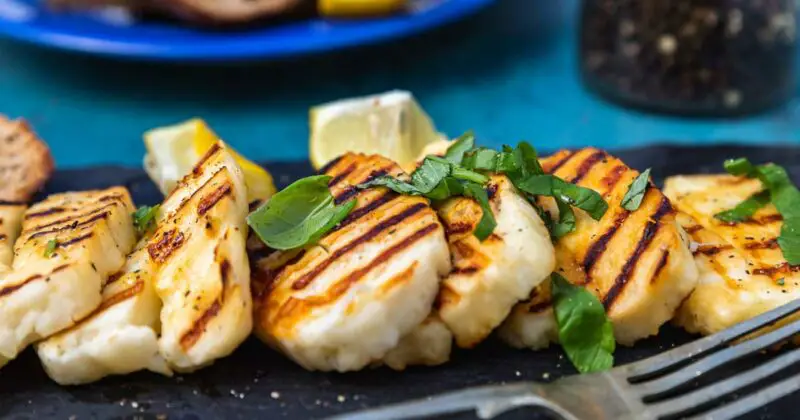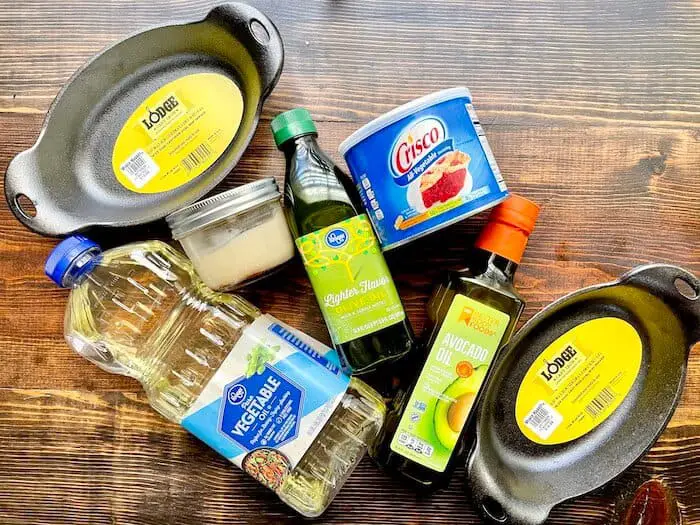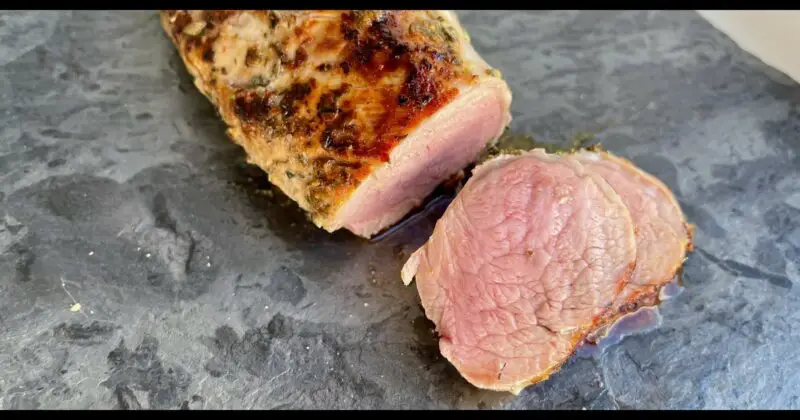How Long Is Halloumi Good For Once Cooked?
There’s no denying that halloumi is a delicious cheese that has grown in popularity over the years. It’s widely used in Mediterranean, Middle Eastern and European cuisine due to its unique texture and taste. One of the best things about halloumi is that it can be cooked in different ways, such as grilling, frying, or baking. However, once you’ve cooked halloumi, you may wonder how long it will last before it goes bad. In this article, we’re going to explore the proper storage guidelines for cooked halloumi, as well as some tips for maximizing its lifespan.
What is Halloumi?
Halloumi cheese is a semi-hard, brined cheese made from a mixture of goat and sheep’s milk (cow’s milk is sometimes used). It originated in Cyprus but is now enjoyed around the world. Because of its unique texture and resistance to melting, it’s an excellent candidate for cooking. The cheese has a slightly salty taste and a rubbery texture, which makes it perfect for grilling or frying as it holds its shape.
Cooking Halloumi
You can cook halloumi in several ways due to its high melting point which makes it ideal for grilling or frying. For grilling halloumi just slice the cheese into 1/4 inch slices and toss them on a grill pan over medium-high heat until they’re golden brown on either side (about 2-3 minutes per side). To fry the cheese slice the halloumi 1/4 inch thick and coat in a mixture of flour and seasoning then fry each piece until golden-brown on each side (around 1 minute per side). Finally Baked halloumi can be enjoyed simply by placing slices of the cheese in a baking dish and cooking it in the oven for around 10 minutes at 400°F (205°C).
Storing Halloumi
The length of time halloumi can be stored, once cooked, depends on how you store it. Proper storage helps preserve the taste and prevent spoilage, so let’s take a closer look at how long it can last:
Refrigeration Guidelines:
After cooking halloumi, it’s important to store it properly to keep it fresh for as long as possible. When refrigerated correctly, cooked halloumi will typically last for up to five days. Store the cheese in an airtight container or wrap it tightly with plastic wrap before placing it in the refrigerator.
- Cooked halloumi should be stored at a temperature of between 34-38°F (1-3.3°C).
- If storing in an airtight container, make sure to use one that fits properly and has an airtight seal.
- If you’ve misplaced the original packaging, using resealable plastic bags is also an option.
Freezing Guidelines:
Cooked halloumi tends to hold up well when frozen but can lose its texture after being defrosted. However, if you’re planning on storing halloumi for more than a week or two, the freezer is probably your best bet. Proper freezing guidelines include:
- Wrap your cooked halloumi tightly with aluminum foil or plastic wrap before placing it in the freezer. This will help prevent freezer burn.
- Avoid over-stuffing your freezer as this could affect the way your halloumi thaws out later on.
- Frozen halloumi cheese can last for up to four months stored correctly at a temperature of 0°F (-18°C).
Factors to Consider When Storing Cooked Halloumi:
You should take into account several factors when storing cooked halloumi to ensure freshness, such as:
- Moisture content – if the cheese has too much moisture in it, it will spoil faster.
- The temperature of your refrigerator/freezer, and where you store it – make sure to keep the cheese away from areas in the fridge that have a high moisture content like the vegetable crisper drawer as this could affect the longevity of your food.
- Age and how quickly you want to consume it – certain foods spoil faster than others so take its age into account when deciding how long to store it.
Checking If Your Cooked Halloumi Has Gone Bad
If you’re uncertain of whether or not your cooked halloumi has gone bad, there are some tell-tale signs to watch out for. Below is a list of checks that should answer your concerns:
- Smell – an unpleasant smell means that the cheese has gone bad.
- Texture – if halloumi texture is slimy, mushy or discolored (such as grey-blue or brown spots), it has gone off.
- Appearance – Signs of mould, visible tendrils, or other forms of foreign growths indicates that it’s reached its shelf life.
Nevertheless, if you’ve noticed any of these signs and are unsure about the cheese’s safety to eat, it’s best to err on the side of caution and discard it.
Can bad cooked halloumi cause food poisoning?
Eating foods, especially dairy products, that are spoiled can increase your risk of food poisoning. When consumed, they could trigger mild to severe symptoms like nausea, vomiting, diarrhea as well as other abdominal complaints.
Tips for Maximising the Life Span of Your Cooked Halloumi
The following tips can help maximise the lifespan and quality of your cooked halloumi:
- Safe handling techniques when cooking and storing the cheese – avoid touching or manipulating the cheese with unclean hands or utensils.
- Package your cooked Halloumi for long-term storage in the freezer with a proper wrap that will not allow air to seep in.
- Cut halloumi only when necessary – storage capacity is increased when cheese remains whole for longer.
Uses For Leftover Cooked Halloumi
Leftover cooked halloumi can be used in various recipes to liven up everything from sandwiches and salads to grilled meats and vegetables. Below are some creative ways you can repurpose leftover halloumi cheese:
Salad Toppings:
- Slice it onto fresh greens and enjoy it with some salad dressing for a healthy lunch option.
- Add chopped pieces of halloumi into a quinoa or couscous salad to give it additional protein and texture.
Sandwich toppings:
- Grill slices before placing them between bread with ingredients like tomatoe jam or crisp lettuce sandwich for a delicious vegetarian option.
Mix it with hummus or baba ganoush, and add the mixture to your pita bread as an added taste of flavor.
Meat Toppings:
- Serve it sliced onto grilled chicken or steak to make an excellent combo.
- Try using it as a burger topping substitute for processed slices of cheese.
Frequently Asked Questions about Cooked Halloumi Lifespan
Here are some commonly asked questions about storing cooked halloumi:
- Can cooked halloumi be frozen?
- Is mould on Halloumi cheese harmful?
- How long does uncooked halloumi last in the fridge?
- Can I cook my whole piece of halloumi cheese?
- What dishes pair well with cooked halloumi?
Absolutely, cooked halloumi can be frozen by wrapping with aluminum foil or plastic wrap to avoid freezer burn. Frozen halloumi can last for up to four months, stored correctly at a temperature of 0°F (-18°C).
Although mold is not toxic, halloumi cheese containing it should be discarded and not consumed.
Uncooked halloumi can last up to two weeks when stored correctly between temperatures of 34-38°F (1-3.3°C).
Absolutely! Place the cheese in a skillet or grill pan over medium-high heat until it becomes golden-brown on the sides. Then slice the cheese slightly thick or thin depending on your preference before serving.
Toast, pita bread, salads, and meat dishes all pair well with cooked halloumi. It’s so versatile, making it the perfect cheese to add to nearly any of your favorite dishes.
Conclusion
In conclusion, proper storage of cooked halloumi is essential if you want to enjoy it beyond a few days after preparation. When handled correctly, cooked halloumi can last for up to five days in the fridge and four months in the freezer. It’s simple and easy to cook with; you can fry, microwave, bake or grill the cheese. Leftover halloumi can be used to make flavorful salad toppings and sandwich fillings. By all standards, halloumi is a versatile and tasty cheese that deserves its place on your dinner table.
1. How long can you store cooked halloumi in the fridge?
After cooking, halloumi can be stored in the fridge for up to 4 days. We recommend keeping it in an airtight container or wrapped tightly in plastic wrap to prevent drying out.
2. Can cooked halloumi be frozen?
Yes, cooked halloumi can be frozen for up to 3 months. Make sure to wrap it tightly in plastic wrap or aluminum foil before placing it in an airtight freezer container or bag.
3. How do you know if cooked halloumi has gone bad?
If you notice any signs of mold, discoloration, or a sour smell, your halloumi has gone bad and should be discarded. It is always best to err on the side of caution and throw it away if you have any doubts.
4. Can you reheat cooked halloumi?
Yes, you can reheat cooked halloumi by pan-frying it for a few minutes on each side until heated through. However, keep in mind that reheated halloumi may not have the same texture as when it was fresh, and may become slightly rubbery or tough.







